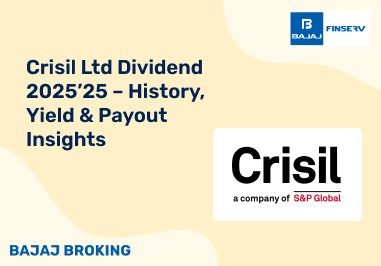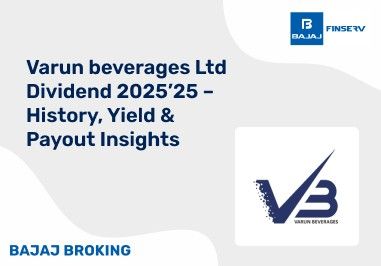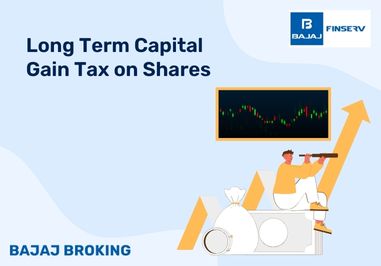Understanding ETFs (Exchange-Traded Funds)
To begin with, you must clearly understand the basics of ETFs. Here’s everything you need to know:
ETFs or Exchange Traded Funds represent a collection of multiple securities like bonds or equities. Investing in ERFs is like investing in multiple securities at once that too without having to pay hefty fees. ETFs differ from mutual funds as the former is bought and sold just like stocks.
Here’s how ETFs work: There are certain fund providers who own specific securities like stocks or bonds in the stock market. Now, these fund providers create a fund to track/mimic the performance of the underlying security that they own. These funds are then sold to investors known as exchange-traded funds or ETFs.
Unlike other stocks, ETFs do not provide ownership of the underlying security; rather the investor/shareholder owns a share of the ETF and the underlying asset is held by the initial fund provider.
Although ETFs are pooled investments like mutual funds, they perform in the stock market just like stocks. Their traded price keeps changing throughout the day depending on the price changes of the underlying security. The profitability for investors primarily depends on how efficiently an ETF can mimic the performance of the underlying security.
Mutual funds and ETFs appear to be the same as both allow investment in multiple securities through an individual investment. However, the key difference between ETFs and mutual funds is that ETFs are managed passively i.e. they track underlying security and can be traded at any time of the day, unlike mutual funds that can be purchased only at the end of each trading day. Additionally, ETFs are cheaper because of their low processing costs.
Did You Know that investing in top gold ETFs has showcased a whooping average one-year return of 29.9% in 2023?
Additional Read: Trading Account: Definition, Types, How to Open & Key Benefits
Types of ETFs
Now, let’s take a look at the types of ETFs available for trade:
Equity ETFs allow investors to track equity indexes, thus opening investment windows into sectors that are performing well, such as tech or banking.
Bond ETFs provide a chance to generate steady income in the long run. Fixed-bond investments are a reliable source for investors who do not want to enter day trading.
As the name suggests, commodity ETFs allow investors to put their money in commodities like gold or oil. However, remember that commodity ETFs only provide derivatives and investors don’t actually own those commodities.
Sector or Industry ETFs are investment pools allowing investment in securities of a specific sector or industry. For instance: An ETF might track the index of tech stocks or banking stocks.
Exchange-traded funds that specialise in foreign securities are called international ETFs. These ETFs track the global market or in some cases country-specific indexes.
Benefits of Investing in ETFs Stock
Now that you have understood what are ETFs, let’s see what benefits they hold for you as an investor:
Possibly the biggest benefit of ingesting through ETFs is the diversification it offers. ETFs allow you to invest in multiple securities with a single investment thus providing a wider window to generate profit.
Pro Tip: A smartly created investment portfolio should feature ETF securities of different types, sectors and industries.
ETFs offering diversification like mutual funds have gained more popularity because of the lower fees and transaction costs. The cost of trading ETFs is kept down through market-based trading. Additionally, since ETFs are traded in the open market, the transaction between investors does not necessarily affect the fund.
Since ETFs are traded like stocks they offer enhanced chances of liquidity by easily selling them through different stock exchanges. You can invest in ETFs at any time during the trading hours.
ETFs are also tax-effective, unlike passive investments. This is primarily because gains from ETFs are often classified under short-term gains thus reducing the tax levied on gains.
Additionally, ETFs also provide income generation through dividends but the tax levied on dividends depends on how long an investor holds the fund. To give you an idea: An investor who holds the fund for more than 60 days before dividends were issued comes under “qualified dividend” and only those dividends are subjected to tax implications.
How to Invest in ETF Stocks
If you are on board with the popularity of ETF stocks, here’s how you can delve into them:
ETFs can provide promising and steady returns but you must choose an ETF smartly. Here are a few tips that experts believe in:
Assess the Tracking Error
Remember that ETFs are designed to track the underlying index and the profit depends on how accurate the tracking is. Mind you, not all ETFs are efficient at tracking. Conduct a thorough research to find ETFs that provides accurate and wide exposure to the underlying index.
Although ETFs are passive investments, they require periodic reviews. You do not have to constantly gauge the market but make sure to periodically visit and review the investment you have made. This is advised primarily because each time the value of the underlying index changes, the value of the ETF changes too, thus making it crucial to move your money.
To invest in ETFs, you will have to open a trading account and a demat account with a reliable trading portal. Make sure to choose a reputed trading portal and gain access to features that allow quick market analysis, instant orders and personalised suggestions based on your investment portfolio.
Once you have the trading account and a decision, you can start trading in ETF stocks at any time of the day.
Risks Associated with ETF Stocks
ETFs are known for their steady and profitable returns but like any other investment pool, ETFs are also prone to certain risks that you must factor in:
The stock market is volatile making every security on the stock exchange also prone to market risks. The value of ETFs depends on the performance of the underlying security that it tracks. For instance: If the market value for tech stocks is high, tech ETF stocks would promise impressive returns and vice versa if the market for tech stocks goes down.
Remember that ETFs work on a fundamental principle of tracking or mimicking the index. In a situation when the ETF fails to mimic the index due to reasons like dividend timing, tax changes or management fees, the investor can face a loss even if the market value for the underlying security looks positive.
Liquidity is a luring factor for many investors interested in ETFs. However, this is not true when investors choose to look at the average daily volume of ETFs rather than implied liquidity. Relying on average daily volume to decide on ETF investment can be risky.
Additional Read: What is Intraday Trading? Benefits, Types & Advantages
Conclusion
Investing in ETFs has become widely popular amongst Indian investors as these are flexible, profitable and cost-effective investments that promise steady returns. However, like other investments, it is important to perform due diligence before putting your money in. Factor in the risk associated with ETFs and your appetite for it before making a call.
Disclaimer: Investments in the securities market are subject to market risk, read all related documents carefully before investing.
This content is for educational purposes only. Securities quoted are exemplary and not recommendatory.
For All Disclaimers Click Here: https://bit.ly/3Tcsfuc














